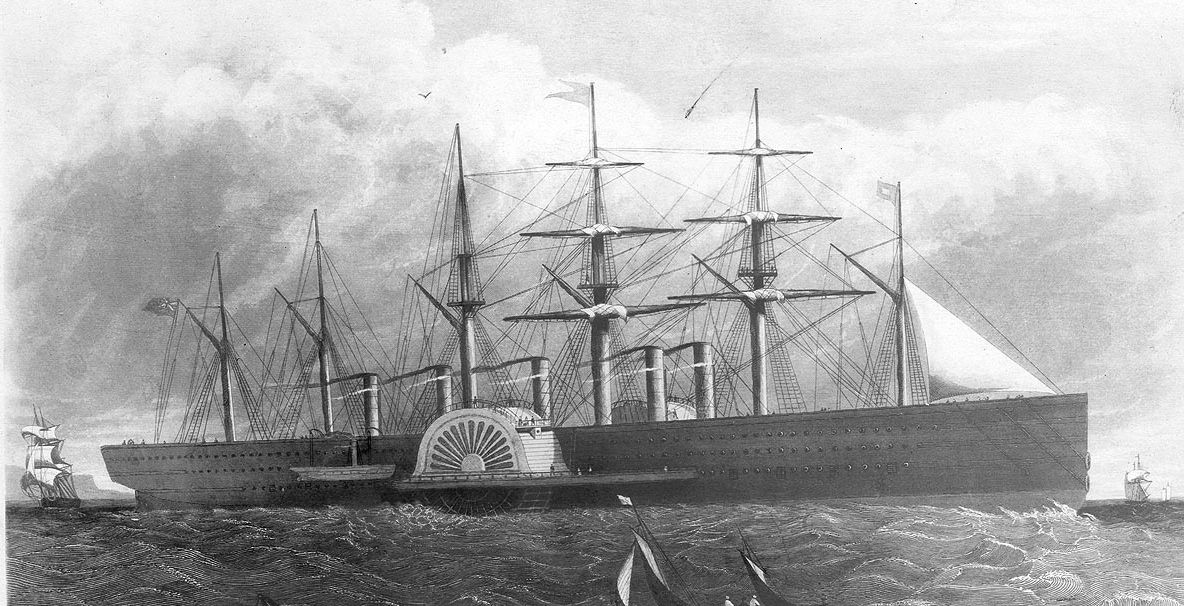
Article posted by
Today, Cobalt looks back on the life of a man regarded by many as the greatest engineer of all time – Isambard Kingdom Brunel. Relentlessly prolific, Brunel was responsible for constructing many pioneering engineering projects, including ships, bridges, viaducts, tunnels, docks, harbours and railways.
Born in Portsmouth in 1806, Brunel took the names of both his French refugee father (Sir Marc Isambard Brunel) and his English mother (Sophia Kingdom). Much more fatefully, however, Brunel inherited the engineering brilliance of his inventor father and, rather symbolically, began his engineering career by assuming the duties of his father as chief engineer on the project to create the 1300ft Thames Tunnel, the world's first tunnel under navigable water. However, Brunel would soon give up this role after suffering serious injury in an accident in 1828 that killed six workers and would be sent to Clifton, on the outskirts of Bristol, to recover.
Here, Brunel would not only change the landscape of Bristol; his revolutionary engineering accomplishments would also change the world. In 1831, after winning a competition to build a bridge across a 250ft gorge, Brunel would engineer the longest suspension bridge in the world – the Clifton Suspension Bridge. Due to financial issues, the bridge – Brunel's 'darling' – would not, however, be completed until after his death.
Brunel would also engineer the Great Western Railway, taking the South West to its London terminus, Paddington Station – another Brunel design. The pioneering 'broad gauge' railway would transform rail travel, leading to a much quicker, smoother journey than had previously been available on earlier, freight-dominated railways in the north of the country. This was a consequence of its friction minimising 7ft wide tracks and the various bridges, tunnels and viaducts built to ensure a flat track. Fittingly, the Great Western Railway would come to be known as 'Mr Brunel's Billiard table' and the ingenuity of its design was matched only by the ingenuity of its supporting structures. The Wharncliffe Viaduct, described by Brunel as 'the finest work in all of England', the 'Box Tunnel', and the bridge over the Thames at Maidenhead – still the widest, flattest brick arch bridge in the world – are among his most celebrated engineering feats.

Arguably Brunel's greatest achievement, however, came in the engineering of his ships. The SS Great Western, the SS Great Britain, and the SS Great Eastern were progressively bigger, and all, at the time of construction, could claim to be the biggest ship on the planet. The SS Great Britain is regarded as the first modern ship, made out of iron and using a six-bladed propeller design instead of paddlewheels. Astonishingly, the propeller used in the Great Britain is only 5% less efficient than a modern propeller, further emphasising Brunel's genius.
Eventually the stress and pressures put on Brunel during the construction and opening of the SS Great Eastern took its toll on his already degenerating health, and Brunel suffered a stroke moments before its maiden voyage, dying ten days later at the age of 53.
Nevertheless, Brunel's legacy and achievements are everlasting and, like the projects he pioneered at the time, capture not just the imagination of the engineering world but the general public at large. All in all, Brunel would engineer 25 railways, over 100 bridges and countless other projects including the design for Florence Nightingale’s hospitals, the invention of an iceberg warning device, and the world's first physiotable. In a BBC public poll conducted in 2002, he was ranked the second greatest Briton behind Winston Churchill. In the eyes of many, however, he undoubtedly remains the greatest engineer of them all.
We’re here if you need help defining a role or brief, specialist insight to help shape your ideas or expert help with your recruitment process. Just get in touch to arrange a conversation with one of the team or if you’re ready for us to find the perfect person for you, send us your brief.
If you’re looking for your ideal job send your CV to us to get started or search for the latest job vacancies and we’ll get the ball rolling.